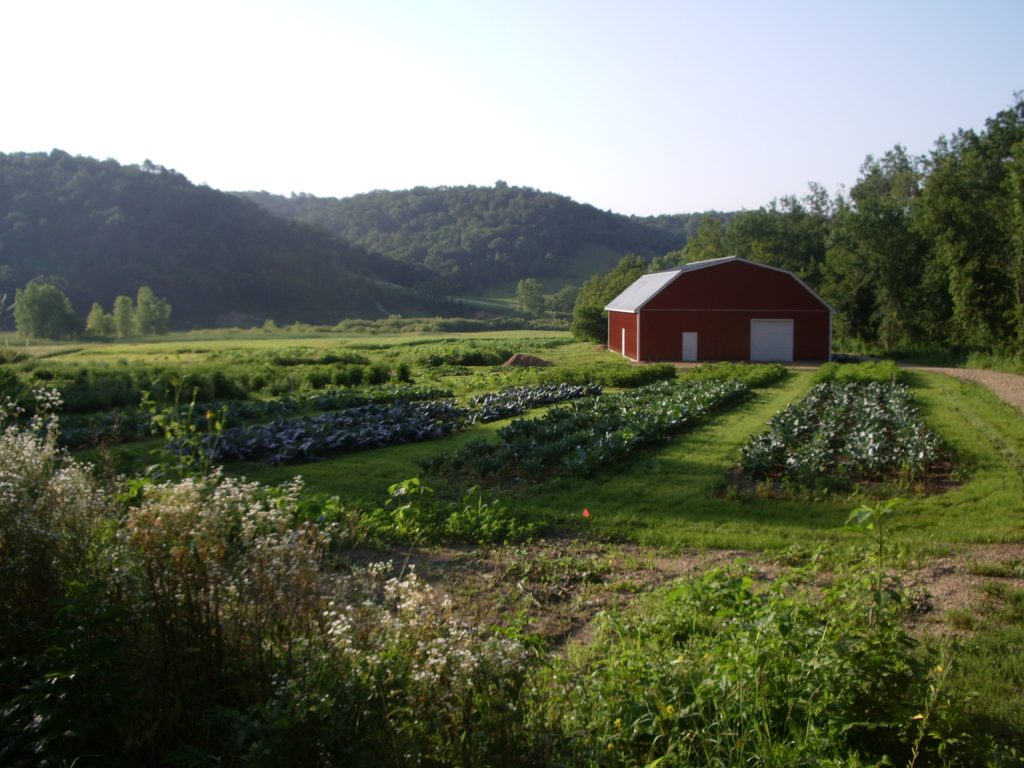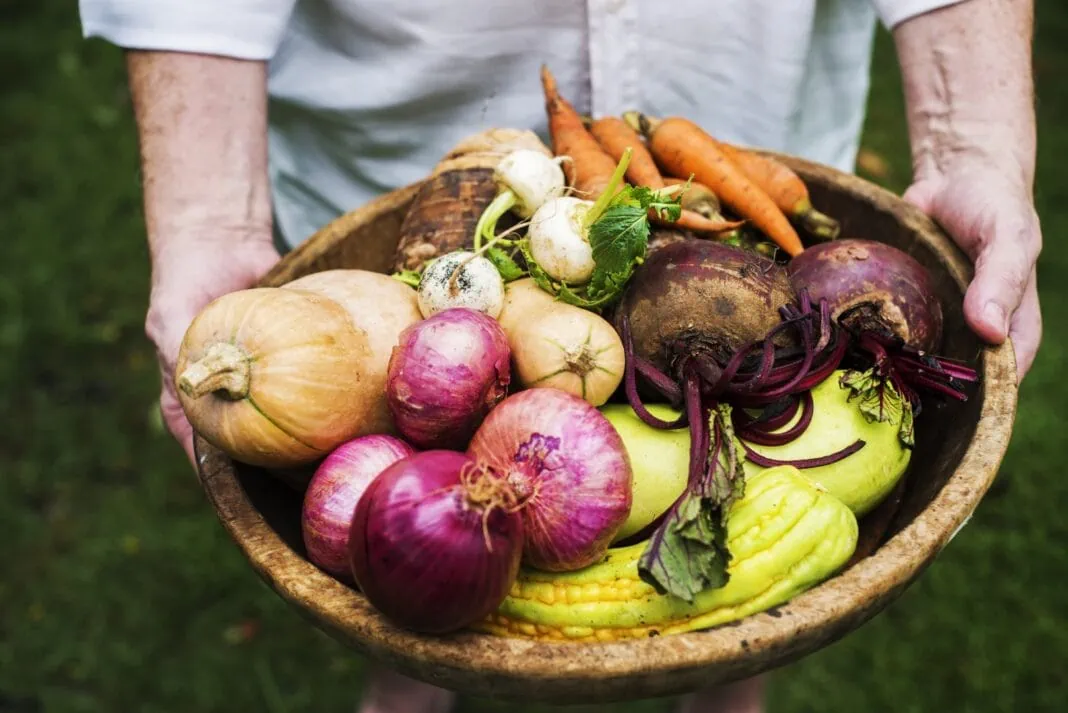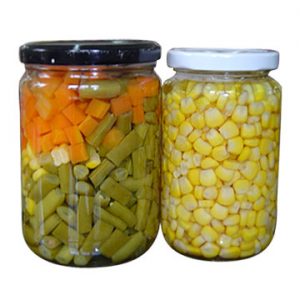Now that the fall has come and the garden is officially empty once again, I’ve recently been thinking that I might not go through all of that again next year. Keeping up a garden is a lot of work; the weather and bugs can be incredibly unpredictable, and some of it ends up going to waste because who really needs eight tomato stalks (but because some of them might not take, you simply have to plant that many! I can’t be the only one with that theory.).
That’s certainly not to say that I’m giving up organic foods, though, just that I’m considering getting them differently.
Have you ever heard of CSA farming?

What happens is that in the spring – at the beginning of the season – you give a local farm some money in exchange for a part of the bounty. All season long (generally from about May to October), you’re supplied with fresh, organic produce that’s as fresh as you grew it yourself. In addition to fresh vegetables (and sometimes fruits), some farms will also put bread, honey, maple syrup, herbs, fresh-cut flowers, and/or handmade soaps in the baskets.
Some also give you the option at the beginning of the season to get weekly shares of meat and/or eggs (the one I’m considering even allows you to put a down payment on freezer lamb and pork that you can pick up in the fall and eat in the winter). It’s great for not only you and the farmer but for the community as a whole.
The Pros and Cons
While I love the general idea of CSA farming and all that it offers, I have to admit that although I’m ready to jump into the challenge head first (and it really is a challenge, but we’ll get to that more later), I’m pretty terrified about the whole idea. Here’s what I mean:
 Pro: Weeks and Weeks’ Worth Of Fresh Produce For Next To Nothing
Pro: Weeks and Weeks’ Worth Of Fresh Produce For Next To Nothing
If you’re someone who purchases your produce at the grocery store, you know just how expensive it can be (and you also probably know that what you’re getting isn’t very fresh). If you do your shopping at a farmer’s market, you’re definitely getting fresher inventory, but you’re definitely paying for it as well.
When you sign up to be part of a CSA farm, you pay a few hundred dollars upfront and get up to twenty weeks of abundant fresh produce, herbs, and possibly more. Most of the ones around where I am run between $300 and $400 for produce and eggs, which works out to be between $12 and $18 a week!
That’s far less than what you’d pay at the grocery store or farmers market. Sure, it’ll cost a little more than growing your own, but it’ll free up a ton of time, which I think is worth the extra couple of bucks (especially during the already far too short summer months).
 Con: Figuring Out What To Do With All Of It
Con: Figuring Out What To Do With All Of It
Remember when I was talking about the whole thing being challenging earlier? Here’s what I meant – You get whatever the farm has available for harvest that week, and some of what you’ll be getting you’ve likely never even heard of much less worked with before (especially if you join a CSA farm that also grows herbs). I’m all for playing chef (and I’m actually pretty gifted at it most of the time) but I can’t lie – the idea of having to figure out what to do with four weeks’ worth of cabbage kind of intimidates me.
Freezing, canning, drying, and jarring will probably become my new hobbies. But you know what? I think I’m completely okay with that.
The farm I’m considering going with harvests herbs and grew stevia this past year. I’ve never actually tried the herb in plant form and seriously hope that they grow it next year so I’ll get to try it.
 Pro: Grass Fed, Organic Meats and Eggs At Bargain Prices
Pro: Grass Fed, Organic Meats and Eggs At Bargain Prices
From what I understand, not all farms offer this. However, every single one I looked at within a 100km radius of my house did (I did two days’ worth of research on organic butchers in my area since I’ve recently moved and as much as I loved my old butcher, it just doesn’t make any sense to travel two hours for meat and then try to bring it home without it spoiling – My new obsession of CSA farming spawned from that).
The farm I’m pretty sure I’m going to go with gives flash-frozen chicken and fresh or flash-frozen beef weekly throughout the season, gives you the option to purchase freezer lamb and pork in the spring to receive in the fall, and even gives you a fresh turkey for Thanksgiving (or a flash frozen one for Christmas). Eggs cost $40 for a half dozen per week or $70 for a dozen per week (if you’ve never had farm fresh eggs, you have to try them – I promise you’ll never want to eat the overly bleached grocery store version ever again) which is perfect for big families and/or vegetarians that eat eggs.
Con: It’s Not Cheap Short-Term
Ultimately, you end up saving a ton of money. However, you have to have the money at the beginning of the season though and depending on what you want, it might not be the most economically convenient. I figured it out, and to get all of the produce, eggs, and meat I want, It’s going to cost well over a thousand dollars upfront. Is it worth it? Absolutely (to me, anyway). However, it’s going to take some careful financial planning between now and April to pull it off, and that’s something that you definitely need to take into consideration if you’re going to consider CSA farming as well.
Pro: You Get To See The Farm…

Again, I’m not sure if all CSA farms do this, but any of the ones I looked at allowed their shareholders to browse the farm during pickup times. If you have kids (or nieces/nephews), it’s a great opportunity to teach them how exactly the whole farm-to-plate thing works. You can actually see how the livestock looks and what it’s eating; you can see the plants that your produce came off of just hours before your tour. Getting to know the farmer and the farm gives you a sense of community and gives you a chance to really get to know your neighbors.
Some farms (including the one I’m looking at becoming a part of) allow you to pay less at the beginning of the season and work off some of your bounty in volunteer hours on the farm. The hours vary from farm to farm, but none of the ones I looked at required more than a two-and-a-half-hour shift once a week — a pretty good bargain when you think about it! I did read a couple of posts where people said their CSA farm required them to volunteer their time, so make sure you read the fine print before signing yourself up for something you’re unable to commit to.
Con: Whenever They Tell You Pick Up Time Is
I’m lucky enough to work from home, so it’s not a big deal to me that all of the pickup times seemed to fall between 9am and 1pm. But I haven’t always been self-employed, and I remember exactly what it was like to be working during those hours, so I completely understand why this won’t work for everyone. Also, from what I understand only some places will let you put your boxes on hold or pick them up later.
In other words, if you’re not there to pick your basket up in time you’re essentially paying for food you’re not getting. If you’re not going to be able to get to the farm every week during the pickup time, you might just be better off picking up what you need at the Farmer’s Market.
Now that you know more about CSA farming, you may be a little more inclined to adopt a local, healthy, organic lifestyle. Remember, each farm is different – Research each one individually and very well and then make an educated decision as to which one will work best for your family. Find one near you and start your search today (Note: This is a list for Ontario, Canada – Google search for your area where applicable)!
I’ve convinced myself that I need to do this next year. Perhaps in the spring, I’ll post a weekly account of the basket I receive, and we can work together on making different meal plans from the (sometimes mysterious) ingredients – What do you think?

 Pro: Weeks and Weeks’ Worth Of Fresh Produce For Next To Nothing
Pro: Weeks and Weeks’ Worth Of Fresh Produce For Next To Nothing Con: Figuring Out What To Do With All Of It
Con: Figuring Out What To Do With All Of It Pro: Grass Fed, Organic Meats and Eggs At Bargain Prices
Pro: Grass Fed, Organic Meats and Eggs At Bargain Prices